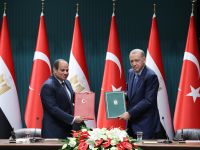The euro plunged through 85 cents in Tokyo Tuesday afternoon to hit a new low of $0.8480, with traders discounting chances of coordinated intervention by the European Central Bank (ECB).
"Despite the euro's weakness, the ECB has yet to take any action to support the currency and so investors are dumping it," said Fuji Bank dealer Hideyuki Tsukamoto.
"The market was inviting the ECB to intervene."
The prospect, however dim, gave some investors cold feet. By 4:00 p.m. (0700 GMT), about an hour after hitting its record low, the euro had recovered to $0.8520 dollars.
That was down from $0.8546 dollars in New York and $0.8557 dollars in Tokyo late Monday, when it had reached its previous low of $0.8510.
"The selling was in line with the trend of euro weakness," said Mitsuru Sahara, vice president of foreign exchange at Sanwa Bank.
"But as soon as it hit the record low, the currency rebounded because of intervention concerns," he said.
The euro got a brief respite last week when the ECB said it would sell up to 2.5 billion euros ($2.13 billion) in foreign currency, mostly dollars and yen.
But the market did not take the sales seriously because the amounts were not large enough, according to dealers.
The euro is also unlikely to get strong support from a Group of Seven (G7) industrialized nations' meeting this weekend in Prague, they say.
"The market was not impressed by verbal warnings by ECB officials on the weak euro," added Sahara.
"The market has yet to see a firm resolve by the ECB to intervene to support the euro."
Dealers said the euro was now so weak that intervention by the ECB alone would not suffice to lift the battered currency.
"The impact of ECB intervention will be very marginal. Unless the United States joins (intervention), the euro will continue to face pressure," Sahara said.
The euro also plunged to a new low of 90.60 Japanese yen, before recovering to 90.98 yen around 4:00 p.m.
The ECB's "reluctance to act thus far shows its concerns over unilateral intervention," said DBS Bank in Singapore.
"Market intervention is the only way to turn the unit around at the moment," it said in a report.— (AFP)
© Agence France Presse 2000
© 2000 Mena Report (www.menareport.com)







